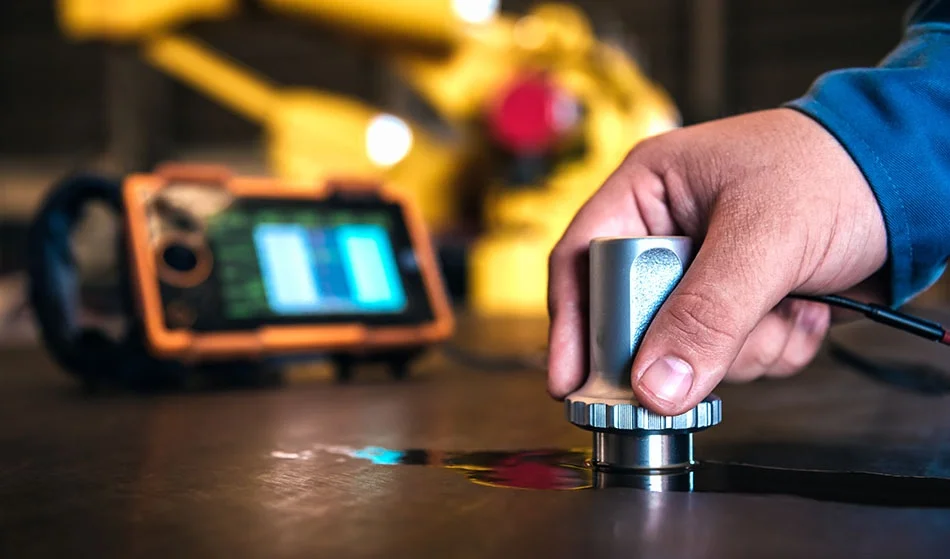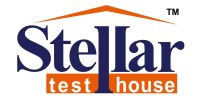Non Destructive Testing (NDT) is a crucial and advanced process used across various industries to evaluate the properties of materials, components, and structures without causing any harm or reducing their usability. This method plays a vital role in identifying flaws on the surface and subsurface levels of objects, ensuring the safety and reliability of assets without altering their integrity.
When you search for a non destructive testing lab near me or a ndt testing lab near me, you’re typically looking for professional services that specialize in detecting defects early and accurately, preventing future failures and improving product life. Whether you’re in aviation, construction, oil & gas, or manufacturing, working with the best NDT testing lab in Noida or your local region can significantly impact your quality assurance process.
What is Non Destructive Testing (NDT)?
Non Destructive Testing (NDT), also known as Non Destructive Examination (NDE), involves a series of techniques to inspect, test, or evaluate materials, assemblies, or components for discontinuities, or differences in characteristics, without destroying their serviceability.
The fundamental goal of any non destructive testing is to ensure components meet safety and performance standards. Since NDT does not alter the physical properties of the material, it allows multiple tests on a single item—helping manufacturers avoid expensive repairs, production downtime, or replacements due to undetected flaws.
Importance of NDT in Everyday Life
NDT is embedded into the safety infrastructure of modern life. From aircraft and trains to oil platforms and bridges, almost every high-risk structure undergoes NDT testing to guarantee safe operation. Here’s where you’ll typically find NDT being applied:
- Aircraft
- Bridges
- Buildings
- Motor vehicles
- Oil platforms
- Oil refineries
- Pipelines
- Power stations
- Spacecraft
- Trains
Given its wide applicability, it’s not surprising that industries often look for a non destructive testing near me that offers accurate, compliant, and cost-effective testing services.
Key Advantages of Non Destructive Testing
- Preserves Component Integrity – Unlike destructive tests, NDT maintains the usability of the item being inspected.
- Cost-Effective – Avoids costly breakdowns or failures by detecting issues early.
- Improves Safety – Reduces the risk of accidents by identifying hidden defects.
- Supports Quality Assurance – Enhances product reliability and helps in compliance with regulatory standards.
- Portable Testing Equipment – Enables on-site inspections without moving heavy machinery or components.
Working with the best NDT testing lab in Noida or your city ensures high precision and professional standards, which are essential in critical industries.
When is NDT Used?
NDT techniques can be used at multiple stages of the product lifecycle:
- Research and Development
- Material Selection
- Product Design
- Production Process
- Final Quality Assurance
- In-Service Inspections and Maintenance
This continuous inspection cycle means that even after an item is in service, regular NDT can monitor its structural integrity and predict possible failures.
Common NDT Techniques Offered by Labs
Over the years, NDT has evolved with a range of standardized techniques. The most commonly used ones include:
Surface and Subsurface Testing
- Visual Inspection (VI)
- Liquid Penetrant Testing (PT)
- Magnetic Particle Testing (MPT)
- Eddy Current Testing (ECT)
Radiographic Methods
- Radiographic Testing (RT)
- Computed Radiography (CR)
- Digital Radiography (DR)
- Film Radiography (FR)
- Computed Tomography (CT)
Ultrasonic Testing
- Straight Beam UT
- Angle Beam UT
- Phased Array Ultrasonic Testing (PAUT)
- Time-of-Flight Diffraction (TOFD)
- Long-Range Ultrasonic Testing (LRUT)
- Electromagnetic Acoustic Transducer (EMAT)
- Automated Ultrasonic Backscatter Technique (AUBT)
Advanced Testing Methods
- Infrared Testing (IR)
- Laser Testing Methods
- Holographic Testing
- Vibration Analysis (VA)
- Acoustic Emission Testing (AET)
- Leak Testing (LT)
When you visit a reputed non destructive, technicians may choose one or a combination of these techniques depending on the material type, inspection location, and defect probability.
Limitations of NDT
While NDT is highly beneficial, there are some limitations to be aware of:
- Qualitative Results – Many NDT techniques provide results that need expert interpretation.
- Repeat Testing – Inconclusive or subjective results may require repetitive tests.
- Inspector Dependency – The final outcome may vary based on the inspector’s skills and experience.
That’s why choosing a certified and experienced NDT testing lab near me is crucial for reliable results.
Why Choose the Best NDT Testing Lab in Noida?
If you’re operating in or around Noida, working with the best NDT testing lab in Noida offers advantages such as:
- NABL-accredited facilities
- Certified and trained professionals
- Use of advanced equipment and modern testing methods
- Compliance with international standards like ASME, ASTM, ISO, and AWS
- Timely reporting and customized testing solutions
From visual inspection to high-end radiographic testing, the right non destructive testing can ensure product safety, regulatory compliance, and long-term performance.
Final Thoughts
Whether you are a manufacturer, construction contractor, or project manager, investing in non destructive testing (NDT) is essential to maintain quality, prevent failures, and reduce downtime. NDT provides a non-invasive, highly effective method for fault detection, helping you avoid financial loss and reputational damage.
So, the next time you’re looking for a non destructive testing near me or searching for the best NDT testing lab in Noida, make sure the lab is certified, experienced, and capable of handling your specific industry needs.



This article connects. Organization really matters on adult video
websites
This topic is underrated. Even adult sites benefit a lot from
thoughtful structure
Interesting article — it actually connects well with what I’ve seen on some
newer 18+ video platforms lately
This article adds up. Clean layouts really enhance the experience on 18+ platforms
Good discussion. I’ve noticed adult video sites evolve a lot in terms of speed and design
Thanks for the thoughts. It matches what I’ve noticed on curated
adult content platforms
Interesting discussion. Adult video sites are changing faster than many people realize
Good read. I’ve noticed the same improvements on several 18+
video platforms
Solid perspective. Modern adult platforms feel very different from
older ones
Thanks for the post. Clean design really distinguishes quality adult platforms from
the rest
Thanks for the thoughts. It aligns with what I’ve noticed on curated adult content platforms